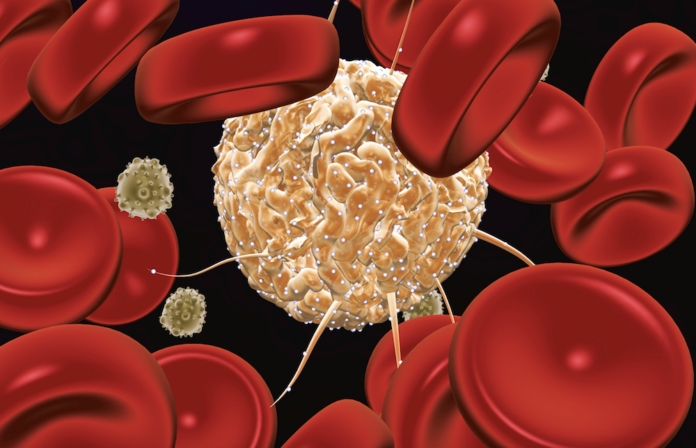
Powerful stem cells found in cord blood have been utilized in more than 30,000 transplants to rebuild the immune system and restore healthy blood globally.
It can treat a variety of conditions and injuries and is considered the cornerstone of restorative treatment. This blood is collected from the baby’s umbilical cord immediately after birth.
The demand for cord blood storage in Dubai is growing rapidly. Many parents are learning about the medical benefits of saving their children’s blood. Cord blood can be stored for future medical procedures and regenerative medicine.
This article will help you understand further why you must consider string cord blood for personal and public benefit.
What Is Cord Blood Banking?

The blood that stays in the placenta and umbilical cord after birth is known as cord blood. The procedure of collecting cord blood, removing its stem cells, and cryogenically storing them is known as cord blood banking.
The term “cord blood banking” may be more often used in Europe and other areas of the world to refer to stem cell banking. Currently, the FDA has approved the use of cord blood to treat approximately 80 disorders.
Researchers are investigating the potential for the cord blood to lower inflammation and pass across the blood-brain barrier. A baby’s umbilical cord blood donation is always a perfect match for the child.
Even extended family members like aunts, uncles, grandparents, and other relatives have a greater chance of matching.
Why Should Parents Consider Cord Blood Banking?
It is still doubtful if a dedicated blood bank is something every parent should consider. It’s helpful to know a little about how this process works and what cord blood can (and can’t) do if needed. The number one reason to save your child’s blood is peace of mind.
Here we have provided some of the most important reasons why parents must consider cord blood banking:
For Families With A History Of Disease

Storing your child’s cord blood in a private bank at the moment of birth is a once-in-a-lifetime opportunity to support your own family so you should consider banking. If there is a family history of cancer or blood diseases, some patients choose to bank their child’s cord blood.
Cord blood contains blood-forming stem cells that can be employed to treat certain ailments, including blood, immunological, and metabolic issues. They are also employed to counteract the immune system-damaging effects of cancer therapy.
Compared to bone marrow, utilizing cord blood to treat illness offers certain benefits. A database keeps track of cord blood so that a unit may be promptly located when needed. Public banks are required to check donors before conception. Anyone who “matches” can use the stem cells from the donated cord blood. To know more about how it works, visit cellsave.
For Mixed Race Families
Stem cells from umbilical cord blood have been used to treat cancer, blood disorders and immunodeficiency. Using cord blood makes it easier to match transplant patients than adult donors. It is difficult to find matches for stem cells for a specific population that needs them.
People of mixed race and ethnicity have difficulty matching donor cells. If you transfer cord blood to a state bank, you lose all ownership of that bank.
Cord blood banks serve a minority to diversify their inventory and reflect the needs of their patients. Patients of mixed ethnicity, who are underrepresented in the global database of unrelated donors, can avoid difficulty finding suitable matches if they consider storing the cord blood during birth.
For A Sibling With A Medical Condition

The genes we inherit are based on a random mix of our parents since we are the only people in the world whose DNA is divided equally between our mother and father.
Because we have the same genetic composition as our siblings, we are genetically very close to them.
Therefore, cord blood between siblings is more likely to be a genetic match. If you choose a private bank, your child’s blood can be used on request.
A transplant is performed on a youngster who has a disease that can be addressed with stem cells. Stem cells from bone marrow or cord blood are infused into the patient’s circulation by a physician.
For the immune system to accept the stem cells, there must be a genetic match between the patients and the stem cells. Naturally, the patient’s own cord blood will be a perfect match.
The Cost Of Cord Blood Banking
Moms must undergo several infection tests, which are required by both public and private cord blood banks (like hepatitis and HIV).
Between $1350 to $2350 should be budgeted for gathering, testing, and registering. Programs that include processing and storage of your baby’s blood may be available from private cord blood banks.
Additionally, some families might receive financial assistance if they choose private cord blood banking. Typically, only biological siblings of your infant who also have specific conditions are eligible for this financial help.

Finally, Can Anyone Donate Cold Blood?
It is ensured that the cord blood remains in the family, and advised that it is not donated to anyone outside of the family. However, if you want to donate cord blood, there are certain criteria that determine eligibility. The Health Resource and Service Administration look after the criteria and check the credibility.
You will submit the information that includes age, gender, and other medical condition. The HRSA uses these answers to determine whether or not you can donate your cord blood bank.
- Are your at least 18?
- Are you having your first baby?
- Are you related to the birth partner?
- In the last 12 months, have you had any tattoos or piercings?
- Have you had any chemotherapy?
These are just a few questions. There is a long list of questions that determine the answer whether or not you can donate.











